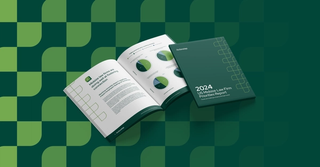
Our UK team has been actively making connections and meeting customers throughout the busy autumn LegalTech events & networking season in London, including Legal Innovators, Legal Geek, Legal Support Network & NetDocuments Elevate EMEA 2019. These events brought together the top minds and leaders in Legal Technology in the form of talks, presentations, panels and networking. Here are some of the key themes our team identified for 2020 as being top of mind for lawyers and legal tech providers going into 2020…
Key Themes:
• The future of legaltech
• Lawyers learning to code
• Artificial Intelligence + Law
• Automation
• How technology can help firms get the best results for their client
What is the future of legal tech?
There are some incredibly exciting things happening in Legal Technology, both in the UK and globally. Ping, Legal Tech Start-up of the Year 2017, are using AI to record time and helping firms find an extra 30% of billable time that couldn’t be found before. AI suppliers have had their machine learning platforms adopted by some of the world’s largest firms and adoption is only rising. NetDocuments are using Quantum Mechanics to control their security encryption, taking confidential data protection to new heights.
We have seen $1 Billion invested in Legal Tech globally in 2018. This sees a steady and exciting rise from $233 Million in 2017 and this has no signs of slowing down. Many at the events we attended highlighted this investment as a new dawn of technology in law and that Legal Tech is now catching up with other sectors.
Others were more hesitant to praise these recent trends. Comparatively, this value pales in comparison to other sectors such as FinTech where we have seen $41 Billion in investment in 2018 and some highlighted that large proportions of Legal Tech’s $1 Billion investment were made up of a handful of big deals for well-established providers. Healthcare technology specifically in AI alone raised $4.3 Billion in the same year. When the largest law firms in the world regularly record revenue in the $10s of Billion, $1 Billion investment across the entire industry seems less and less impressive. But the trend is likely to continue.
The last few years have seen more aggregation and acquisition between tech suppliers. Law firms are keeping a close eye on these business moves and are wary of what this means for them. Is this a good thing that “the best” technologies are strengthening or are we seeing monopolies forming in certain areas? If everyone is starting to use the same or similar platforms, how can you differentiate yourself and get ahead of the competition?
Should Lawyers learn to code?
This was a question raised to a panel at Legal Innovators. A rousing case was made for why some firms encourage their solicitors to learn basic coding, even going as far as giving them access to back-end databases to apply small fixes in order to reduce strain on their IT teams and consultants.
The majority weren’t quite as enthusiastic to let inexperienced coders loose on their systems. The objective of all legal technology is to maximise the billable hours spent practising law, not coding. Ensuring users of Legal Technology are better educated and more tech-savvy is key to successful adoption, but not at the expense of the efficiency that technology is trying to gain.
AI - Just for the big fish?
There is still some confusion and a lack of knowledge on how AI operates and how it needs to be incorporated into the legal sector, but despite this, all of the top global firms have started their journeys to use AI in their day-to-day operations and investing in their own solutions.
The rise of incubators such as Barclays Legal Labs will continue to support and assist in establishing new Legal AI suppliers to provide these firms with more options, allowing them to continue to innovate and remain on the cutting edge.
But what does this mean for the SME firms with lowers budgets to invest in these types of technologies? According to the Law Societies LawTech Adoption Research, while the number of tech suppliers is rising, the adoption rate has not shown signs of increasing. Large proportions of the SME legal sector are using free apps and desktop software in an era where cloud-based technology and agile, remote working is becoming commonplace.
NetDocuments have identified this and are not only striving to work with the largest firms but also strive to increase adoption of their platform in sole practitioners and high street firms who want the ability to access the same level of technology and reap the same rewards.
The word “Automation”
Before thinking about AI, all firms should be thinking about Automation and how their firm is reducing administrative, time-consuming tasks.
Document Automation is widely adopted in all areas of law and has become a standard offering within most legal technology solutions, but there is much more that can be automated within a solicitor’s working day. Workflow automation can allow firms to better organise and track their progress, while email templating can save time and also standardise communications for less experienced staff. Tasks, data collection, reporting and the billing process are all areas in which significant time can be saved by investing in automation.
But it's not just having the right tools for the job. It is also important that automation technology is constantly analysed and customised in order to allow your firm to evolve with the ever-changing market. Process mapping is usually only undertaken when a new technology is installed, but it should be a constant work in progress. Every member of staff should be empowered to identify tasks that can be automated, workflow steps that can be made more efficient and explore new ways of leveraging existing technologies. Efficiency savings will only be seen if steps are being made to refine your automation processes and ensure all your staff have bought into the firm’s vision and its choice of technology.
It's all about the client
The final and most powerful message from across the industry was that legal technology should solve problems, not only for law firms and their lawyers but also for their clients.
- How does this technology provide a better value for my client?
- How best should individuals and organisations seeking legal services contribute to a firm’s decisions on technology?
- How can firms better interact with their clients through technology?
These were all questions put forward at the 3 events and there were an array of answers and hours of debate. Firms can adopt products with exciting features on the cutting edge of technology to play with, but if they aren’t resulting in firms providing a better service for their clients, then they won’t be able to compete. Technology that allows firms to truly change their processes and be flexible to react to the demands of their clients will allow for this. Greater efficiency and better processes should result in lower costs, better client experience and more secure platforms to store and share information.
In summary, by leaving the robotic tasks to the robots, lawyers can focus more on connecting with their clients, innovating their processes and doing what they love – Practicing Law.
_______________________________________________________________________________________________________________________
By James Shorey, VP, Actionstep United Kingdom
Written by James Shorey



